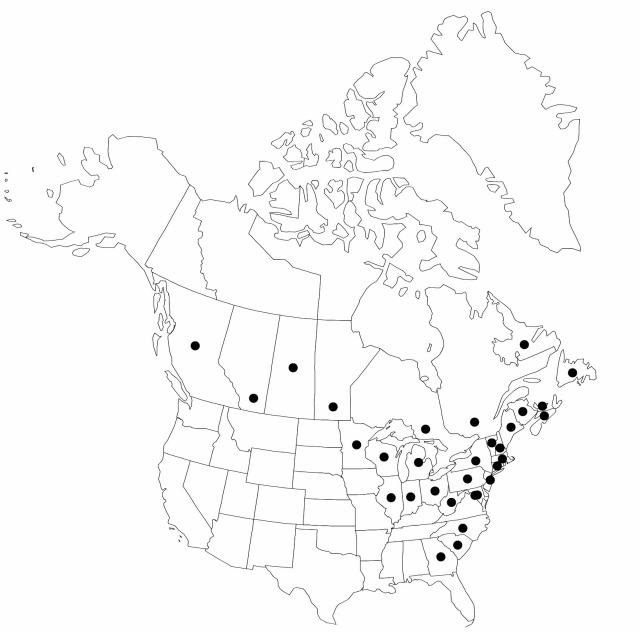Carex tonsa
Bull. Torrey Bot. Club 35: 492. 1908.
Plants densely to loosely cespitose; rhizomes ascending to erect, brown to reddish brown, 0–10 mm, stout. Culms 4–16 cm, scabrous distally; bases (remnants of old leaves) fibrous. Leaf blades pale to bright green, equaling or exceeding stems, 0.5–4.3 mm wide, herbaceous or coriaceous, glabrous abaxially, strongly scabrous to papillose adaxially. Inflorescences with both staminate and pistillate scales; peduncles of basal pistillate spikes erect, short to elongate, stout to slender; peduncles of staminate spikes 0.8–15 mm; proximal nonbasal bracts scalelike, shorter than inflorescences. Spikes: proximal pistillate spikes 2–3 (basal spikes 1–2); cauline spikes usually overlapping with staminate spikes, with 3–10(–15) perigynia; staminate spikes 4.5–11.3 × 1.1–3 mm. Scales: pistillate scales pale brown to reddish brown, with narrow white margins, ovate, 2.9–4.1 × 1.5–1.9 mm, equaling or exceeding perigynia, apex acute to long-acuminate; staminate scales ovate, 4.2–5.4 × 1.2–2.1 mm, apex obtuse or acute to acuminate. Anthers 1.6–2.9 mm. Perigynia green to pale brown, veinless, ellipsoid, obtusely trigonous in cross section, 3.1–4.7 × 1.1–1.6 mm; beak straight, pale green, occasionally with reddish brown tinge near apex, strongly 2-edged, 0.9–2 mm, smooth or ciliate-serrulate, apical teeth 0.2–0.5 mm. Stigmas 3. Achenes brown, ellipsoid to obovoid, obtusely trigonous in cross section, 1.6–2 × 1.2–1.6 mm.
Distribution

North America.
Discussion
Varieties 2 (2 in the flora).
Selected References
None.
Lower Taxa
Key
| 1 | Perigynia with few hairs near base of beak, otherwise glabrous; leaves pale green, often relatively short, coriaceous, usually smooth adaxially. | Carex tonsa var. tonsa |
| 1 | Perigynia pubescent on beak and body; leaves bright green, much longer than culms, herbaceous, scabrous to papillose adaxially. | Carex tonsa var. rugosperma |